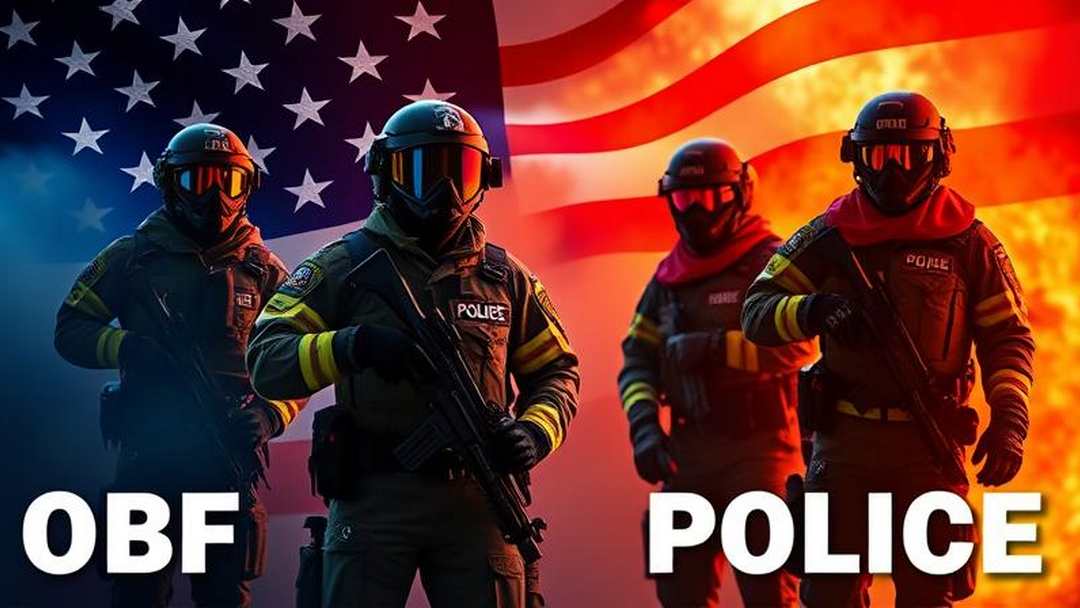What are your rights before and after arrest?
Generally, police require a search warrant to lawfully enter any private premises or to search electronic devices such as your phone or computer.
If the police do not possess a search warrant, you are under no obligation to permit them entry into your home, garage, vehicle, or any other private space that is not accessible to the public.
Conversely, if they present a warrant, you should comply by allowing them to search the specific items or areas detailed within the warrant, as the scope of their search is typically confined to those terms.
Anything you say will be twisted into their narrative and used against you
While the police are conducting their search, you can ask if you can watch them as they complete it. That is… if you’re not facedown on the floor and handcuffed.
You can also ask if you can call a lawyer even if you’re facedown in the dirt and handcuffed.
They probably will not allow it so remain silent and assert your 5th amendment. Anything you say will be twisted into their narrative and used against you.
Before they begin. Police should give you a list of everything that they take as evidence when they complete their search.
They should also leave a copy of the warrant or other document that allowed the search.
Of Course There’s Exceptions
- The Auto Exception Rule
- Exceptions that Justify Warrantless Searches?
- If police witness a crime, they do not need a warrant to conduct a search.
Anything you say will be twisted into their narrative and used against you
The Fifth Amendment
The Fifth Amendment ratified in 1791 is supposed to protect citizens from government overreach.
Protections
- Due process: Requires notice and a hearing before taking away life, liberty, or property
- Self-incrimination: Prevents being forced to testify against oneself in a criminal case
- Double jeopardy: Prevents being tried twice for the same crime
Grand jury: Requires an indictment by a grand jury before being tried for a serious crime - Takings: Requires just compensation when the government takes private property for public use
Other protections
- Equal protection before the law
- Financial compensation when the government takes private property
The Fifth Amendment draws its roots from English common law, with the grand jury clause tracing back to the Magna Carta, a historic document that safeguarded individuals against unjust prosecution by the English monarchy.
Miranda Rights
When you are arrested by the police, it is their legal obligation to inform you of your Miranda rights.
The most common version of Miranda rights is:
You have the right to remain silent. Anything you say can and will be used against you in a court of law. You have the right to an attorney. If you cannot afford an attorney, one will be provided for you.
You may encounter an alternative perspective, yet it must uphold the same rights.
You are not obligated to answer questions following your arrest, as both police and prosecutors cannot compel you to do so, and this right to remain silent is protected under the Fifth Amendment of the U.S. Constitution.
You are entitled to have legal representation with you when communicating with law enforcement or the prosecutor. When you are sitting in the “interview room”
This includes any oral or written statements you make.
Your right to a lawyer is guaranteed by the Sixth Amendment to the U.S. Constitution.
Michigan law guarantees that anyone suspected of committing a crime who wants a lawyer can get one, regardless of their ability to pay.
You must clearly and specifically ask for a lawyer to have one present during police questioning.
If you are charged with a crime
If you are charged with a crime, your right to a lawyer continues throughout the process. You find out what crime(s) you are charged with at an arraignment. At this point you become the defendant in the case. You’re part of the State of Michigan family now.
So call us because you don’t want to be a part of that family.
Komorn Law (248) 357-2550
Other Posts
Sometimes our posts provide a general overview of things with opinionated sarcasm and dry humor by the writer to lighten the same old same old of other law sites. It does not substitute for legal advice. Anyone charged with a criminal offense should consult an attorney for specific legal guidance. BTW. True Fact: When Michael Komorn fights the justice system there is only one focus. You and your rights.
Recent

Other Bodily Fluid House Hearing – HB-4391- Update 5-22-25
Michigan House HearingHB-4391 Saliva Test Update 5-22-25Watch the hearing or read the summary.Click here or image below to see videoFYI: Marijuana although voted to be legalized is still classified as a controlled substance in the State of Michigan and Federally. More...

Criminal Law FAQs – Marijuana Offenses
Michigan Criminal Laws FAQs Marijuana OffensesFAQ 1: Is recreational marijuana legal in Michigan? Answer: Yes, recreational marijuana is legal for adults 21 and over in Michigan. However, there are restrictions on possession, use in public places, and driving under...
More
Supreme Court 8-1 Gun Possession Decision Changes Second Amendment
Supreme Court 8-1 Gun Possession Decision Changes Second Amendment Landscape Forever!Issue: Whether 18 U.S.C. 922(g)(1), the federal statute that prohibits a person from possessing a firearm if he has been convicted of “a crime punishable by imprisonment for a term...
Facial Recognition and Wrongful Arrests
Facial RecognitionHow Technology Can Lead to Mistaken-Identity Arrests Facial recognition technology has become increasingly prevalent in law enforcement, but its use raises critical questions about civil liberties and accuracy. One landmark case sheds light on the...
People v. Chandler Case: Protecting Fourth Amendment Rights
Court of Appeals of Michigan PEOPLE of the State of Michigan, Plaintiff-Appellee, v. Javarian CHANDLER, Defendant-Appellant. No. 368736 Decided: June 27, 2024Before: Borrello, P.J., and Swartzle and Young, JJ. Introduction In the People v. Chandler case, the Michigan...
What are Miranda Rights?
What are Miranda Rights?Miranda Rights, also known as the Miranda warning, are the rights given to people in the United States upon arrest. “You have the right to remain silent. Anything you say can and will be used against you in a court of law…” These rights stem...
What is the Exclusionary Rule?
What is the Exclusionary Rule?The Exclusionary Rule is a legal principle in the United States that prevents the government from using most evidence gathered in violation of the United States Constitution. Specifically, it applies to evidence obtained through an...
Michigan’s public employees are protected by government immunity for bad decisions
Sorry...Not SorryMichigan Governmental Immunity Laws Michigan’s governmental immunity laws provide legal protection to government agencies and their employees in negligence lawsuits. Here are the key points:Governmental Agency Immunity: A governmental agency is immune...














